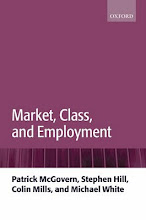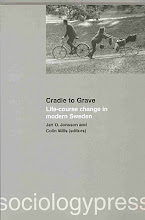Allegations of scientific fraud have been made against Diederik Stapel a Professor of Psychology at Tilburg University in the Netherlands. Science covers the story, but I think gets one detail wrong, he hasn't yet been fired, just suspended pending an investigation by the university. Andrew Gelman has been blogging about some recent cases. What is odd in a way is that Stapel is an experimentalist. Making up data from experiments is in one sense easy, but extremely high risk. In any reputable discipline you have to specify the experimental protocols well in advance, do the power analysis, recruit people and run the experiment. If you turn up with some data but nobody recalls you ever running the experiment then suspicions are immediately aroused.
For what it is worth, in my own neck of the woods I don't believe there is much downright fraud going on. But intellectual dishonesty takes a number of forms. The pressure to publish and to produce startling findings is just too great for many to resist and when you see the pressure that people are under you can understand why they do it. Being selective about the evidence you consider; ignoring inconvenient results; making claims which aren't in any way justified by the meager empirical evidence; making a fuss about statistically "significant" differences without noticing that the "effect sizes" are of no practical interest; projecting trends on the basis of poor measurements taken at two time-points; allowing the press to run away with a sexy story that you know in your heart of hearts probably isn't true - but justifying it by saying: "well it's the best evidence we have at the moment".
All of this goes on all the time. The reason is simple. Coming up with some genuinely novel findings in the social sciences is hard. A lot of the time the world really is just as it appears to be or is resistant to having the truth extracted from it - especially if all you have to go on are observational data. So if you do find some data that gives you a quirky result you have to be quite saintly not to rush into print with it. So "obesity is contagious" is news and "fat people seek each other out" is not. One can understand that the press is interested in the former. What is less understandable is that some reputable academic journals apparently are extremely reluctant to publish critiques of headline papers whose claims turn out, on close examination, to have less substance than the authors would have us believe. Let's not forget, that at the end of the day one of the central institutions of science - academic journals - is a profit making business and that nobody has succeeded in making the Journal of Unrejected Null Hypotheses look attractive to a publisher.










No comments:
Post a Comment